John Edmund Hare (born 26 July 1949) is a British classicist, philosopher, ethicist, and currently the Noah Porter Professor Emeritus of Philosophical Theology at Yale University.
John Edmund Hare (born 26 July 1949) is a British classicist, philosopher, ethicist, and currently the Noah Porter Professor Emeritus of Philosophical Theology at Yale University.
He received a Bachelor of Arts honours in Literae Humaniores in 1971 from Balliol College, Oxford, and a PhD in classical philosophy from Princeton University in 1975. He was a visiting assistant professor at the University of Michigan in 1975, a professor of philosophy at Lehigh University from 1975 to 1989, and Professor of Philosophy at Calvin College from 1989 to 2003. Hare served on the staff of the United States House Committee on Foreign Affairs from 1982–83, and was selected to give the Gifford Lectures at the University of Glasgow in 2005. He is now the Noah Porter Professor Emeritus of Philosophical Theology at Yale University.
Hare has been on the editorial boards of several academic journals, including The Journal of Religious Ethics, American Philosophical Quarterly , History of Philosophy Quarterly , and Ancient Philosophy , and currently serves on the boards of the Yale Center for Bioethics, Yale Center for Faith and Culture and Berkeley Divinity School.
The author of over sixty articles in scholarly journals, Hare has worked on a wide range of topics, including ancient philosophy, medieval Franciscan philosophy, Immanuel Kant, Søren Kierkegaard, contemporary ethical theory, the theory of the atonement, medical ethics, international relations and aesthetics.
The son of the British utilitarian R. M. Hare, Hare has created an ethical theory that integrates Kantian deontological ethics with utilitarian consequentialism. Unlike his father's, Hare's philosophy is specifically Christian and includes elements of Divine command theory.
In The Moral Gap (1996), Hare outlined and analyzed various philosophers' responses to the gap — which he finds to be identified in Kant's writings — between human ethical ability and human ethical duty; between what is possible and what is required. He sees this "moral gap" as ultimately unbridgeable apart from religion. In God's Call (2001), Hare addresses the "moral gap" with a discussion of the divine command theory of morality, and argues against J. B. Schneewind's secularized reading of Kant's philosophy.
In Why Bother Being Good? (2002), Hare delivers a non-technical apologetic for Christian beliefs and argues that morality cannot be adequately grounded in reason alone but needs a firm basis in faith, or something that will do the work theology has done for the Western tradition in the past. In God and Morality: A Philosophical History (2007), Hare evaluates the ethical theories of Aristotle, Duns Scotus, Immanuel Kant, and the author's father, R. M. Hare, with close attention to the similarities among the philosophers and the relationship of their work to theism.
Hare has given been the Calvin Lecturer (1999–2000), the Stob Lecturer (1999), the Gifford Lecturer (2005), and the Plantinga Lecturer (2008). He held the senior fellowship at the Center for Philosophy of Religion at the University of Notre Dame from 1998–99, and again from 2008-09. In 1997, Hare was the recipient of the Institute for Advanced Christian Studies Book Prize and held the Pew Evangelical Fellowship from 1991–92. He was also a Congressional Fellow of the American Philosophical Association from 1981–82, and a visiting fellow in the humanities at the Medical College of Pennsylvania from 1978-81. Hare is the recipient of the Junior Lindback Award for Distinguished Teaching (1981) and was elected an honorary member of Phi Beta Kappa (1979).
Hare worked as a teacher at Tyndale Biscoe School in Kashmir (India) from 1966-67. He is a published composer of liturgical compositions for choir and organ.[ citation needed ]
The argument from morality is an argument for the existence of God. Arguments from morality tend to be based on moral normativity or moral order. Arguments from moral normativity observe some aspect of morality and argue that God is the best or only explanation for this, concluding that God must exist. Arguments from moral order are based on the asserted need for moral order to exist in the universe. They claim that, for this moral order to exist, God must exist to support it. The argument from morality is noteworthy in that one cannot evaluate the soundness of the argument without attending to almost every important philosophical issue in meta-ethics.
In metaphilosophy and ethics, metaethics is the study of the nature, scope, and meaning of moral judgment. It is one of the three branches of ethics generally studied by philosophers, the others being normative ethics and applied ethics.
In ethical philosophy, utilitarianism is a family of normative ethical theories that prescribe actions that maximize happiness and well-being for the affected individuals. In other words, utilitarian ideas encourage actions that ensure the greatest good for the greatest number.
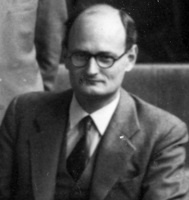
Richard Mervyn Hare, usually cited as R. M. Hare, was a British moral philosopher who held the post of White's Professor of Moral Philosophy at the University of Oxford from 1966 until 1983. He subsequently taught for a number of years at the University of Florida. His meta-ethical theories were influential during the second half of the twentieth century.

Divine command theory is a meta-ethical theory which proposes that an action's status as morally good is equivalent to whether it is commanded by God. The theory asserts that what is moral is determined by God's commands and that for a person to be moral he is to follow God's commands. Followers of both monotheistic and polytheistic religions in ancient and modern times have often accepted the importance of God's commands in establishing morality.

Virtue ethics is an approach that treats virtue and character as the primary subjects of ethics, in contrast to other ethical systems that put consequences of voluntary acts, principles or rules of conduct, or obedience to divine authority in the primary role.
In moral philosophy, deontological ethics or deontology is the normative ethical theory that the morality of an action should be based on whether that action itself is right or wrong under a series of rules and principles, rather than based on the consequences of the action. It is sometimes described as duty-, obligation-, or rule-based ethics. Deontological ethics is commonly contrasted to consequentialism, utilitarianism, virtue ethics, and pragmatic ethics. In this terminology, action is more important than the consequences.

The Euthyphro dilemma is found in Plato's dialogue Euthyphro, in which Socrates asks Euthyphro, "Is the pious loved by the gods because it is pious, or is it pious because it is loved by the gods?" (10a)
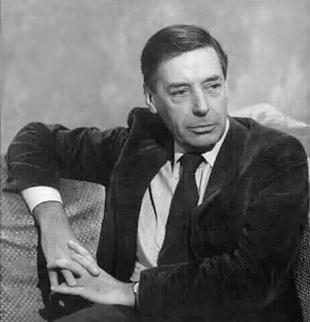
Sir Bernard Arthur Owen Williams, FBA was an English moral philosopher. His publications include Problems of the Self (1973), Ethics and the Limits of Philosophy (1985), Shame and Necessity (1993), and Truth and Truthfulness (2002). He was knighted in 1999.
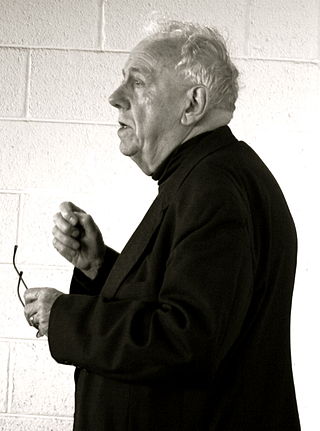
Alasdair Chalmers MacIntyre is a Scottish-American philosopher who has contributed to moral and political philosophy as well as history of philosophy and theology. MacIntyre's After Virtue (1981) is one of the most important works of Anglophone moral and political philosophy in the 20th century. He is senior research fellow at the Centre for Contemporary Aristotelian Studies in Ethics and Politics (CASEP) at London Metropolitan University, emeritus Professor of Philosophy at the University of Notre Dame, and permanent senior distinguished research fellow at the Notre Dame Center for Ethics and Culture. During his lengthy academic career, he also taught at Brandeis University, Duke University, Vanderbilt University, and Boston University.

Robert Merrihew Adams is an American analytic philosopher, specializing in metaphysics, philosophy of religion, ethics, and the history of early modern philosophy.
Secular ethics is a branch of moral philosophy in which ethics is based solely on human faculties such as logic, empathy, reason or moral intuition, and not derived from belief in supernatural revelation or guidance—a source of ethics in many religions. Secular ethics refers to any ethical system that does not draw on the supernatural, and includes humanism, secularism and freethinking. A classical example of literature on secular ethics is the Kural text, authored by the ancient Indian philosopher Valluvar.
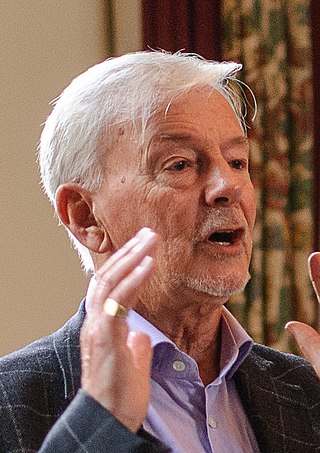
Keith Ward is an English philosopher and theologian. He is a fellow of the British Academy and a priest of the Church of England. He was a canon of Christ Church, Oxford, until 2003. Comparative theology and the relationship between science and religion are two of his main topics of interest.

Kantian ethics refers to a deontological ethical theory developed by German philosopher Immanuel Kant that is based on the notion that "I ought never to act except in such a way that I could also will that my maxim should become a universal law.” It is also associated with the idea that “[i]t is impossible to think of anything at all in the world, or indeed even beyond it, that could be considered good without limitation except a good will." The theory was developed in the context of Enlightenment rationalism. It states that an action can only be moral if it is motivated by a sense of duty, and its maxim may be rationally willed a universal, objective law.
Thomas V. Morris, is an American philosopher. He is a former professor of philosophy at the University of Notre Dame, Indiana. He is a founder of the Morris Institute for Human Values, and author of several books. He is also a business and motivational speaker, applying philosophical themes and concepts to business and professional life.

William Klaas Frankena was an American moral philosopher. He was a member of the University of Michigan's department of philosophy for 41 years (1937–1978), and chair of the department for 14 years (1947–1961).
Donald Mackenzie MacKinnon (1913–1994) was a Scottish philosopher and theologian.
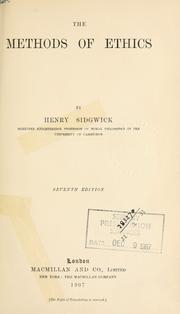
The Methods of Ethics is a book on ethics first published in 1874 by the English philosopher Henry Sidgwick. The Stanford Encyclopedia of Philosophy indicates that The Methods of Ethics "in many ways marked the culmination of the classical utilitarian tradition." Noted moral and political philosopher John Rawls, writing in the Forward to the Hackett reprint of the 7th edition, says Methods of Ethics "is the clearest and most accessible formulation of ... 'the classical utilitarian doctrine'". Contemporary utilitarian philosopher Peter Singer has said that the Methods "is simply the best book on ethics ever written."

Barbara Herman is the Griffin Professor of Philosophy and Professor of Law at the University of California, Los Angeles Department of Philosophy. A well-known interpreter of Kant's ethics, Herman works on moral philosophy, the history of ethics, and social and political philosophy. Among her many honors and awards include a Guggenheim Fellowship (1985-1986) and election to the American Academy of Arts & Sciences (1995).

Stephen Richard Palmquist is an American philosopher, currently living in Los Angeles. He taught philosophy at various universities in Hong Kong from 1987 to 2021. A Patheos article referred to him as "one of the greatest living interpreters of Kant".